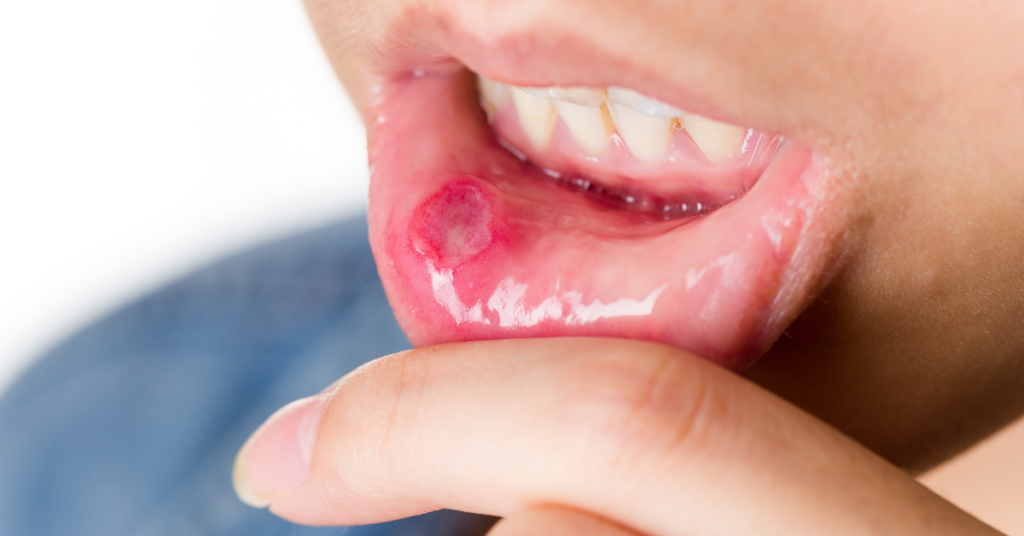White, cottage cheese-like lesions coating your tongue? Experiencing a raw, sandpaper sensation in your mouth or throat when you swallow? You may be dealing with a case of oral thrush.
This pesky fungal infection can make eating, drinking, and even talking uncomfortable. But don’t worry – oral thrush is treatable with the right medications and oral hygiene regimen. Learning what causes thrush, the common symptoms to watch for, and any risk factors that make you prone to it will help you identify and treat it promptly.
What Triggers Thrush Overgrowth?
Oral thrush occurs when there is an overgrowth of the yeast-like Candida fungus in the mouth. There is normally a balance of microorganisms like bacteria and fungi that live in your mouth. So what allows Candida to multiply out of control and cause problems?
Medications Can Disrupt the Microbial Balance
Certain medications like antibiotics, inhaled corticosteroids, and immunosuppressants can kill off good bacteria that keep Candida in check. This allows the fungi to flourish. Other drugs that cause dry mouth also create the perfect environment for thrush.
Medical Conditions and Treatments
Health issues like diabetes, HIV/AIDS, and nutrient deficiencies impede the immune system and make it easier for fungal infections to grow. Cancer treatments like radiation and chemotherapy have the same effect.
Smoking and Denture Use
The chemicals in cigarettes and other tobacco products increase thrush risk by limiting saliva flow and suppressing immunity. Ill-fitting dentures and improper cleaning also make the mouth more thrush-prone.
Infants and Seniors Have Underdeveloped or Weakened Immunity
Babies under 12 months and the elderly commonly get thrush because their immune systems are either still developing or decreasing with age. Their risk is higher.
Keep an eye out for the telltale symptoms of thrush so you can seek treatment ASAP if they occur.
Check Out: List of Supplements That Cause Dry Mouth
How to Spot the Signs of Oral Thrush
Thrush can show up in different ways, but there are some common symptoms to watch for:
Creamy White Patches and Coating
Whitish bumps on the tongue or inner cheeks that can be wiped away to reveal underlying redness are the most obvious oral thrush symptom. These lesions may spread throughout the mouth.
Swelling, Redness and Sensitivity
Inflammation often accompanies fungal overgrowth. Your mouth may become red, swollen and tender to touch. This is the body reacting to the infection.
Altered Sense of Taste
Thrush alters your ability to taste foods normally. Things may seem less flavorful or just “off” while you have an active infection.
Difficulty Swallowing
As lesions spread, they can make eating and swallowing painful. Extensive overgrowth may even affect your ability to talk.
Cracked Corners of the Mouth
Angular cheilitis, which causes bleeding cracks in the corners of your mouth, can also signal thrush overgrowth.
Don’t ignore these symptoms. See your dentist or doctor promptly if you experience any of them for two weeks or longer so appropriate antifungal medication can be prescribed. Topical antifungal rinses, lozenges, or oral pills will be used to clear up the infection. Practice good oral hygiene as well to help resolve thrush symptoms faster.
Individuals at Higher Risk for Oral Thrush
Some groups are more prone to problematic thrush infections due to weakened immunity or medications that increase susceptibility. Be aware if any of these factors apply to you:
• Infants – Babies under 12 months have underdeveloped immune systems that make them highly susceptible, but it is readily treatable.
• Seniors – Advanced age brings decreased immunity and reduced saliva flow that can lead to thrush. Poorly fitting dentures also raise risk.
- Cancer patients – Chemotherapy and radiation treatments compromise the immune system and increase thrush likelihood.
- People with HIV/AIDS – Fungal infections like thrush are common and considered an opportunistic infection.
- Smokers – Tobacco use impairs immune function and decreases saliva production causing greater thrush susceptibility.
- Inhaled steroid users – Drugs like asthma inhalers promote thrush growth. Rinsing your mouth after use can help prevent it.
- Diabetics – Elevated blood sugar facilitates fungal overgrowth. Managing glucose levels and your immunity can lower risk.
- Denture wearers – Improper cleaning and ill-fitting dentures often lead to irritating tissue abrasions that allow thrush to take hold.
Being mindful of oral thrush symptoms and your susceptibility to it allows for quicker treatment and relief. Seeking prompt medical care at the first signs prevents the infection from becoming more extensive. With prescription antifungal medicine and good oral hygiene habits, thrush can be readily controlled.
Lubricity is a Proud Supporter of the
What do customers say about Lubricity Dry Mouth Spray?











